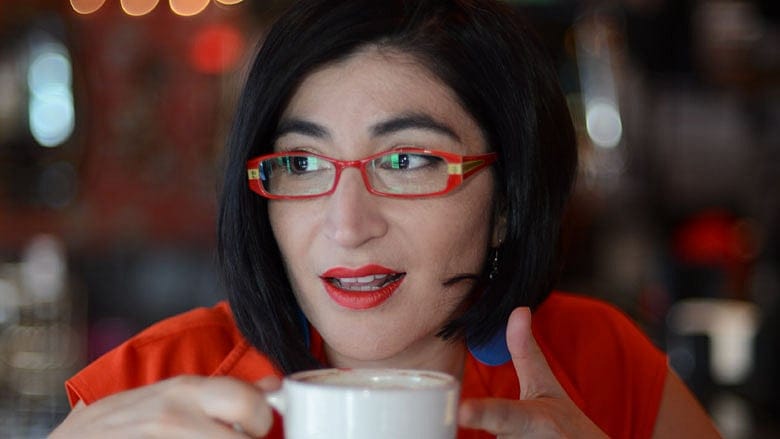A Muslim comedian’s take on diversity in America

Negin Farsad opens her recently published memoir, How to Make White People Laugh, by announcing that she is an "Iranian-American Muslim female comedian-slash-filmmaker," and also a self-professed "honey mustard enthusiast." She declares that like most comedians, she "has a master's degree in public policy and African-American studies," from Columbia University. Rather than trying to establish a common ground with her audience as some writers might, Farsad calls attention to her idiosyncratic background from the get-go. She subsequently uses this platform to explore the truly pressing questions surrounding modern race relations: What does it mean to have a hyphenated identity in America today? How can we actually combat racism, stereotyping, and exclusion? Why do British people order shrimp on their pizzas, like psychopaths?
Although How to Make White People Laugh represents her first foray into publishing, New York-based Farsad already boasts an accomplished resume. She is the director and producer of the feature films Nerdcore Rising starring Weird Al Yankovic, and The Muslims are Coming! starring Jon Stewart, David Cross and Lewis Black. Her third film, 3rd Street Blackout, is slated for release this year. She also has numerous writing and acting credits for networks, including Comedy Central, MTV, PBS, Nickelodeon and IFC. She has even been selected as a TED Fellow (of the famous talk series). Indeed, her description of the TED conference as a blur of meeting people who invented the internet, hunting for free snacks, and chiding herself for not having "set up a 501(c)(3) whose mission is to end world hunger through an interspecies app robot" by day 3, is one of the book's most memorable episodes.

